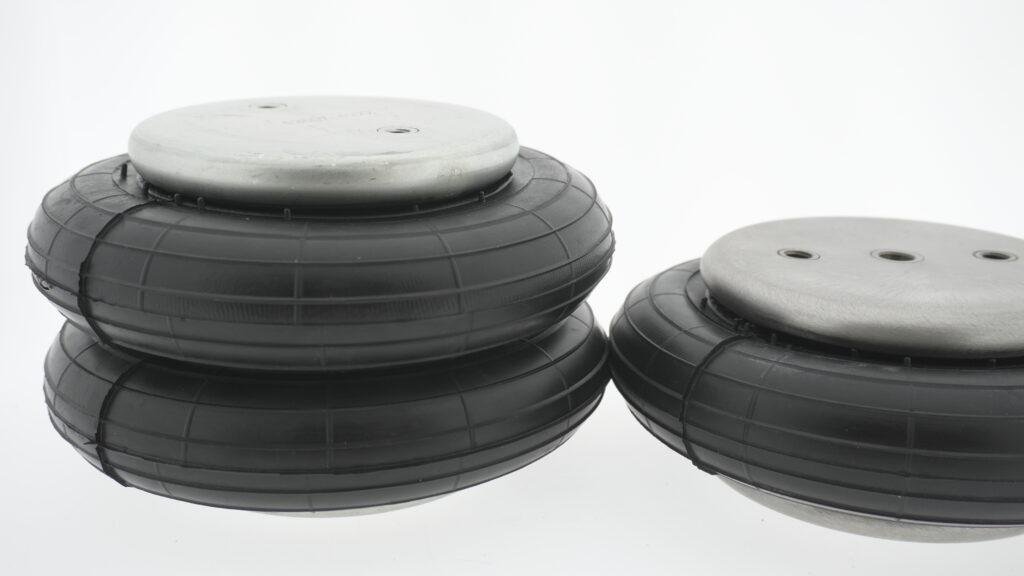
Enhancing Industrial Efficiency with Air Bellows
In modern industrial settings, achieving optimal energy efficiency is crucial. One often overlooked yet highly effective solution is air bellows. By integrating these flexible pneumatic actuators, factories reduce energy consumption, extend equipment lifespan, and enhance performance. Air bellows operate using compressed air, minimizing standby power consumption. Traditional systems suffer from continuous energy losses, whereas air bellows function only when required. This leads to lower operational costs and reduced downtime. Additionally, air bellows require minimal maintenance, further decreasing costs. Their adaptive load support improves machinery efficiency, reducing wear and tear. The ability to handle shock absorption optimizes system stability. By ensuring uniform force distribution, they enhance process accuracy. The compact design allows for efficient space utilization. Air bellows contribute to sustainable energy practices, making them a cost-effective choice. Their versatility benefits multiple industrial applications, making them an ideal energy-saving alternative.

Air Bellows as an Energy-Saving Alternative
Air bellows offer a high force output while using minimal energy input. Unlike hydraulic or mechanical systems, they minimize continuous power consumption. This results in lower energy bills and improved sustainability. Traditional actuators require constant pressure maintenance, leading to excess energy waste. Air bellows, however, utilize controlled air compression, reducing operational inefficiencies. This significantly improves system responsiveness and reduces leakage risks. Their efficient performance leads to long-term cost reductions. Factories utilizing air bellows experience fewer mechanical failures, resulting in higher productivity. Additionally, the reduced wear and tear enhances system longevity. Their ability to function without hydraulic fluids eliminates contamination risks. This ensures environmental compliance while maintaining high efficiency. The modular design allows for customized applications, increasing industrial adaptability. Their flexible nature enables integration into various systems. By utilizing air bellows, businesses can optimize resource allocation while minimizing operational waste. This makes them a practical choice.
Reducing Energy Loss with Efficient Actuation
One major cause of energy waste in factories is inefficient actuation systems. Traditional hydraulic and pneumatic cylinders consume continuous power, leading to higher operational costs. Air bellows function using compressed air, eliminating unnecessary energy losses. Their ability to operate only when needed significantly reduces overall consumption. This leads to lower maintenance costs and improved efficiency. Unlike mechanical actuators, air bellows require no lubrication, decreasing maintenance demands. This enhances long-term performance while reducing machine downtime. Air bellows operate at adjustable pressures, providing precise control. Their efficient energy usage leads to faster response times, optimizing production cycles. The lightweight design reduces structural stress, improving system durability. By integrating air bellows, factories can reduce overall energy dependency. Their ability to function without excessive power draw makes them ideal for energy-conscious industries. Air bellows provide a reliable solution for optimizing industrial efficiency.
Improved Vibration Isolation for Energy Conservation
Factories often experience energy inefficiencies due to uncontrolled vibrations. These vibrations increase machine stress, leading to higher energy consumption. Air bellows serve as effective vibration isolators, reducing unwanted movements. This leads to improved machine efficiency and lower energy usage. Their ability to absorb mechanical shocks extends equipment lifespan. By maintaining system stability, air bellows prevent excess energy losses. The high isolation capacity ensures minimal vibration transfer, optimizing machine operations. Unlike traditional dampening methods, air bellows require no external energy, reducing power demands. Their adaptive nature allows for precise load adjustments, enhancing overall stability. Implementing air bellows leads to consistent energy savings. Their flexible structure absorbs vibrations effectively, minimizing wear and tear. This significantly improves system longevity. The ability to operate under variable loads ensures optimal isolation performance. Air bellows offer an advanced solution for reducing industrial energy consumption.
Optimized Load Balancing in Heavy Machinery
Heavy machinery requires consistent load balancing to function efficiently. Uneven weight distribution increases energy demands and reduces operational efficiency. Air bellows provide uniform force distribution, improving machine performance. Their ability to handle dynamic loads ensures stable operation. This prevents excessive power consumption and mechanical failures. Unlike rigid suspensions, air bellows adapt seamlessly to variable loads. This enhances energy efficiency while maintaining system integrity. Their ability to absorb shocks improves stability. This leads to reduced mechanical strain and lower repair costs. Air bellows function at adjustable air pressures, ensuring optimal energy usage. By distributing loads evenly, they prevent structural imbalances. This leads to longer machine lifespan and improved cost efficiency. The ability to handle heavy loads efficiently makes air bellows an essential energy-saving tool. Their role in reducing industrial energy waste is undeniable.
Low-Maintenance Design for Long-Term Energy Savings
Air bellows feature a maintenance-free design, reducing operational costs. Unlike hydraulic actuators, they require no lubrication, decreasing resource usage. This ensures consistent efficiency while minimizing waste. Their ability to function without seals eliminates fluid leakage risks. This improves system reliability and extends machine lifespan. Air bellows resist abrasion and corrosion, reducing wear-related downtime. Their long-lasting materials ensure sustained performance. This results in lower replacement costs and extended operational life. The high-strength elastomers used in their construction provide exceptional durability. Air bellows require minimal inspections, reducing maintenance schedules. This makes them an ideal choice for industries seeking low-maintenance solutions. By integrating air bellows, businesses reduce operational overheads and increase productivity. Their ability to function without mechanical failure ensures consistent energy efficiency. This makes them a reliable alternative to traditional actuation methods.
Implementing air bellows in industrial applications leads to significant energy savings. Their ability to function efficiently and reliably reduces operational costs. By minimizing power consumption, they enhance machine longevity and reduce maintenance expenses. Their ability to handle variable loads optimizes system performance. Unlike traditional actuators, air bellows require no lubrication, improving long-term efficiency. Their compact design allows for versatile applications. Air bellows eliminate hydraulic fluid waste, promoting environmentally friendly operations. Their ability to function under high pressure ensures consistent performance. By absorbing vibrations effectively, they minimize energy losses. Their maintenance-free operation significantly reduces downtime. Factories utilizing air bellows benefit from optimized resource allocation. This leads to higher productivity and lower power consumption. Their ability to adapt to various industrial needs ensures long-term sustainability. Air bellows provide a cost-effective solution for energy-conscious industries. Their contribution to industrial efficiency is undeniable.
